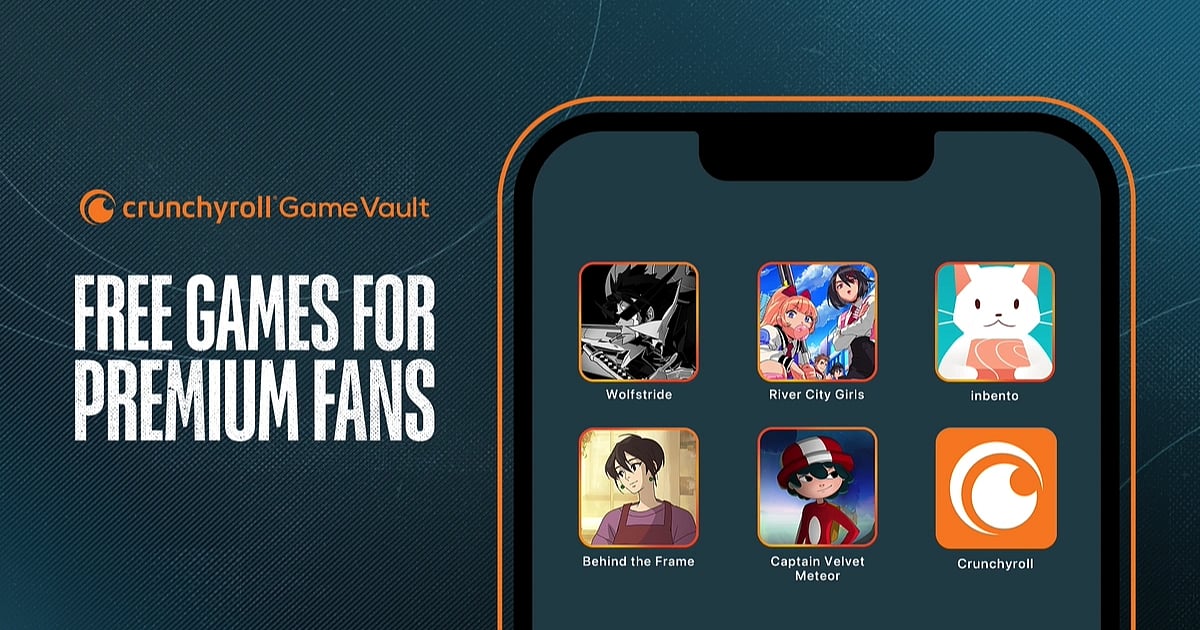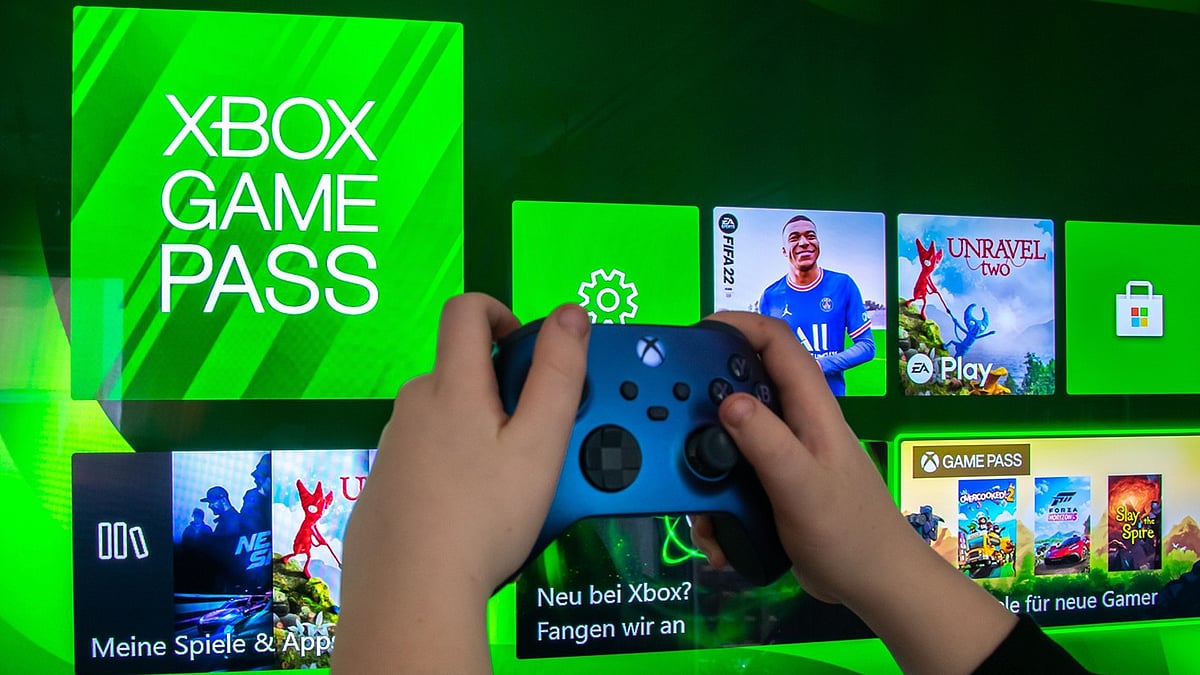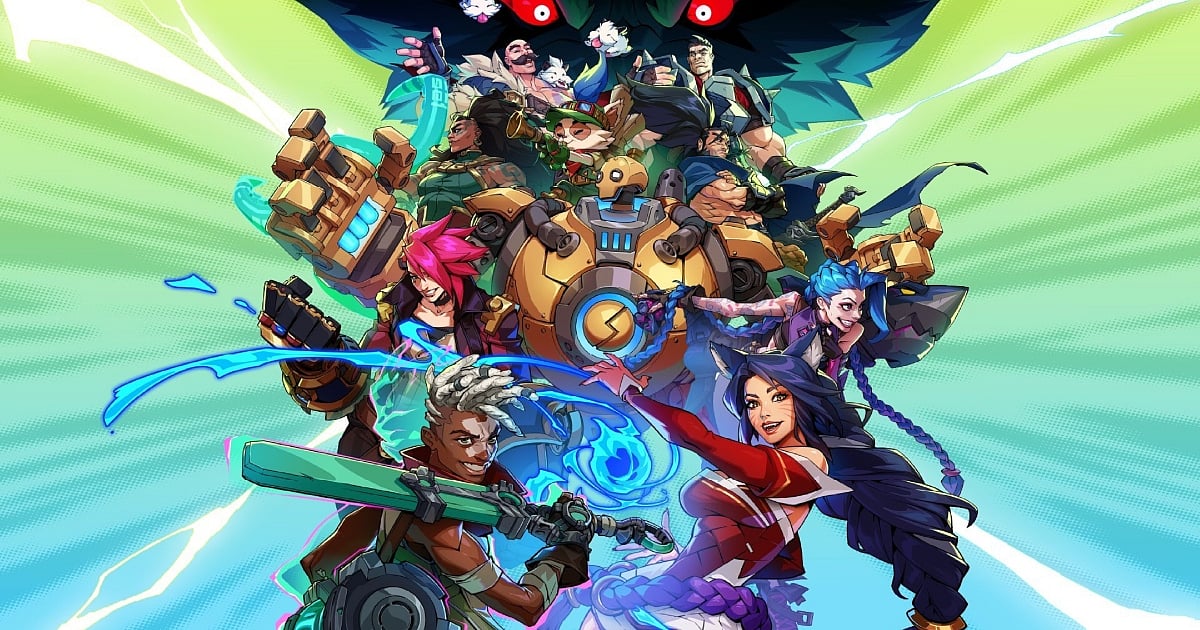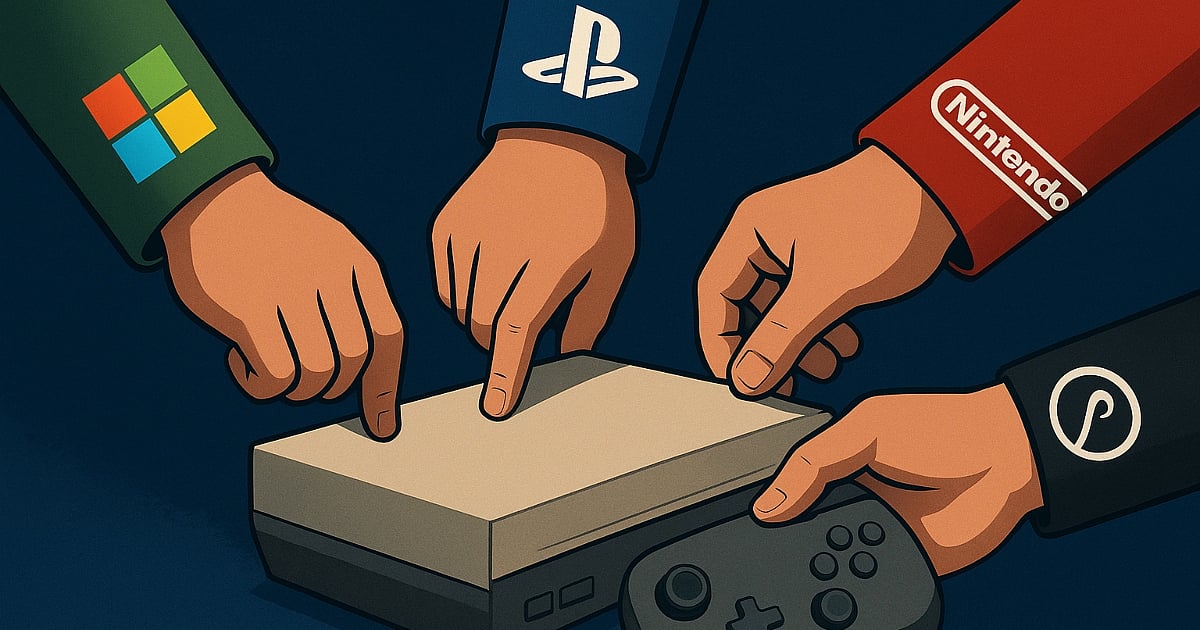
Gaming's New Digital Landlords
Microsoft, Sony, or Valve? The 2025 Battle to Rent You Your Hobby
The hardware war is dead. Microsoft, Sony, Nintendo, and Valve are now fighting a psychological battle to become your "digital landlord" and rent you a hobby for life.
Highlights
- The "Console War" has evolved into a strategic battle to turn gaming into a perpetual rental service.
- Giants like Microsoft, Sony, and Valve now compete to lock users into distinct subscription ecosystems.
- The goal is to become "digital landlords," securing a permanent monthly slice of your budget.
We used to argue in schoolyards about which 16-bit console was better. The fight was simple, loud, and usually ended when the bell rang. You bought a plastic box, you bought a cartridge, and the company with the coolest games won your allowance. That model is dead. The "Console War" as we knew it is over—not because a winner was finally declared, but because the battlefield has completely shifted.
Today, the four titans of gaming—Microsoft, Sony, Nintendo, and Valve—are no longer just fighting for a one-time $500 purchase. They are engaged in a far more subtle, lucrative, and psychological battle: a fight to "lock you in" and convert your hobby from a collection of products you own forever into a service you rent… monthly. They have all become digital landlords, and each has developed a brilliant, distinct strategy to ensure you pay your rent on time, every month, for life.
Microsoft: The ‘Play Anywhere’ Empire
Microsoft’s strategy is perhaps the most radical departure from tradition. To put it simply: Microsoft doesn't care if you ever buy an Xbox Series X. They have moved beyond the concept of a "console war" and entered a "screen war". Their competitor is no longer just Sony; it is Netflix, YouTube, and TikTok. The weapon of choice is Xbox Game Pass, a subscription so central to their plans that it has earned the label "The Netflix of Games".
Microsoft is building a universal tollbooth. Their platform is aggressively agnostic. Want to play on a high-end PC? There’s PC Game Pass. Prefer a console? The Series X is there. But the real masterstroke is the cloud. You can now download an Xbox app directly onto a Samsung smart TV, connect a Bluetooth controller, and stream massive blockbusters like Starfield without owning a console at all.
The strategic reasoning here is volume and ecosystem dominance. By shifting the battle from selling hardware to monopolising your time, Microsoft aims to be everywhere. Even with the recent price adjustments—with the cost of the Ultimate tier climbing to account for larger catalogs and partner rewards—the goal remains the same: as long as you are paying the monthly fee, they are winning, regardless of the screen you use.
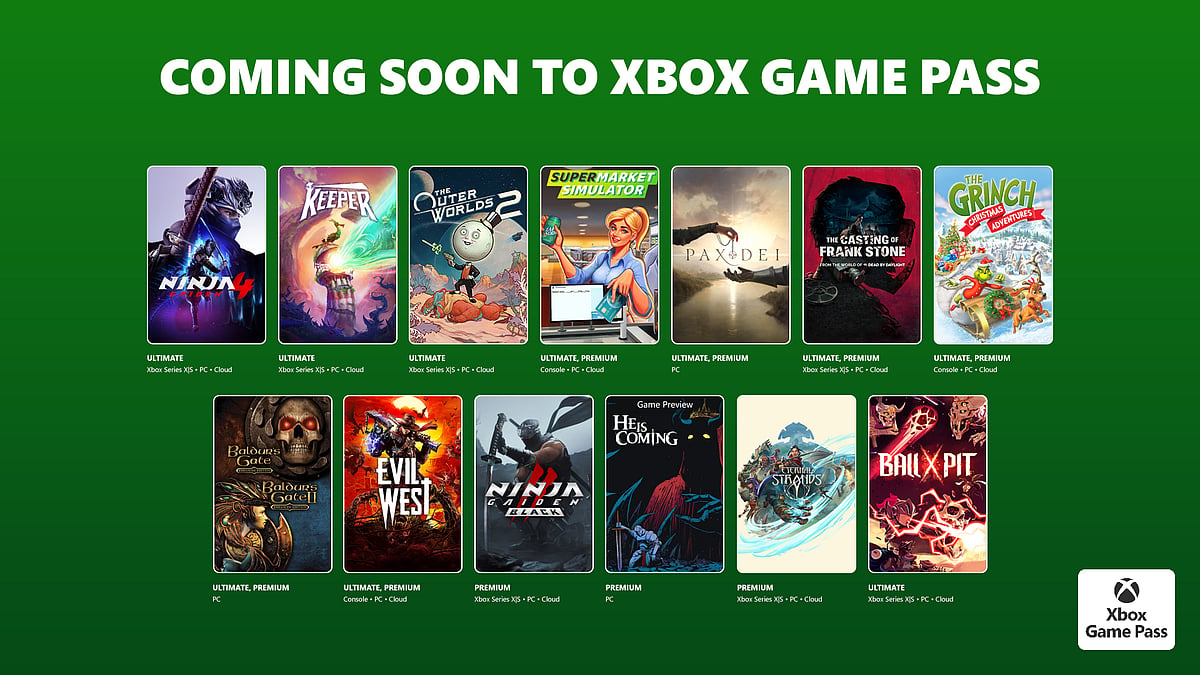
Xbox Wire
Sony: The Velvet-Roped Walled Garden
If Microsoft is trying to be everywhere, Sony is trying to be the one place you must go. Their strategy is a premium, two-step process built on the foundation that their hardware is the "crown jewel". Step one is the hardware lock. Sony forces you to buy the $500 PlayStation 5 by locking its most prestigious cultural events behind the box. You cannot play Marvel’s Spider-Man 2, God of War Ragnarok, or the upcoming Wolverine anywhere else for years. These are "system sellers", designed to get you inside their walled garden.
Step two is the subscription upsell. Once you are inside the garden, Sony hits you with PlayStation Plus (Extra/Premium). Now that you’ve paid for the box, the rationale implies, why not pay a monthly fee to access a 400-game back catalog? Prices in 2025 are roughly $10/month for Essential, $15/month for Extra, and $18/month for Premium.
Even Sony’s recent move to release games on PC is a calculated marketing ploy. Releasing God of War (2018) on PC wasn't about surrendering exclusivity; it was a teaser campaign to get millions of new players hooked just before the sequel dropped exclusively on PS5. Sony uses the PC port as a profitable prologue to sell you a console.
Nintendo: The Nostalgia Tollbooth
Nintendo operates in its own magical, monopolistic bubble. They don't compete on graphics or cloud tech; they compete on your childhood. The Nintendo Switch Online (NSO) subscription is famously the cheapest of the bunch, but it is also a masterclass in "nostalgia lock-in". First, it creates a multiplayer tollbooth. If you want to race friends in Mario Kart 8 or join a Turf War in Splatoon 3, you must pay for the subscription.
But the deeper hook is how they handle their history. Nintendo is literally renting you back your own memories. The company’s beloved retro library—the NES, SNES, and N64 games many grew up with—is no longer available to buy and own digitally.
It is locked exclusively inside the subscription. You don't get to own Super Mario 64 anymore; you only get to rent it, month by month. It is a low price, but for fans, it has become a mandatory tax to access their most cherished gaming experiences.
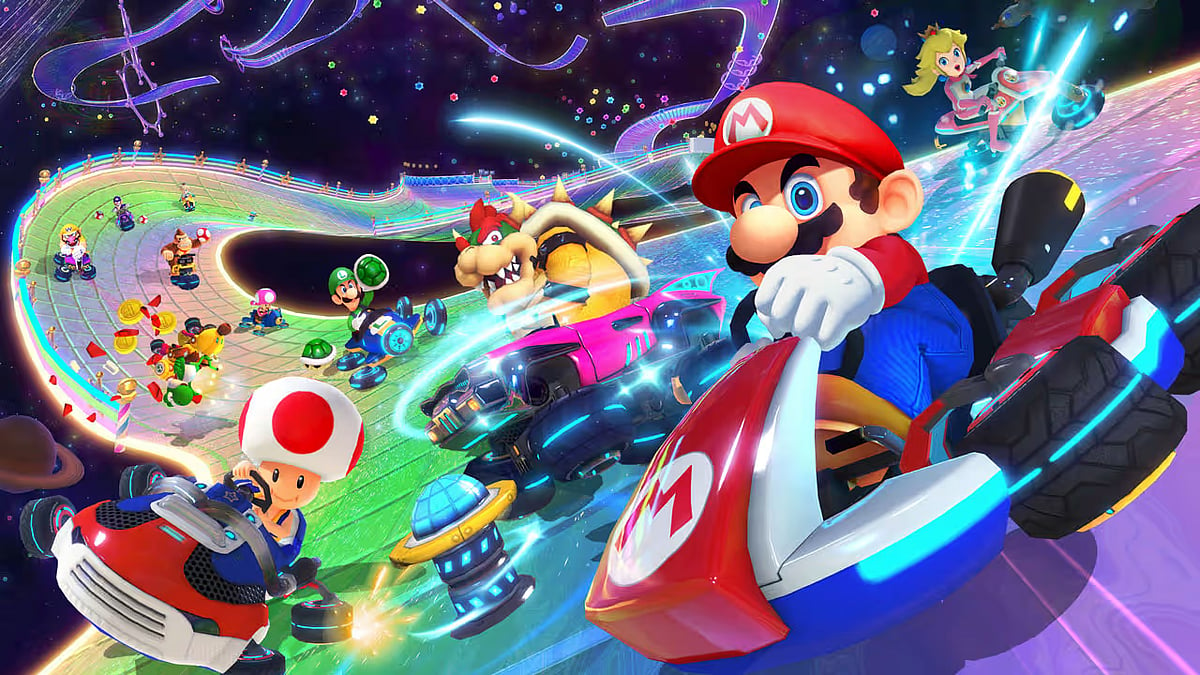
Nintendo
Valve: The ‘Open’ Prison of Your Own Making
Finally, there is Valve, the company that runs the PC gaming world through Steam. Their strategy is the most subtle because it is disguised as total consumer freedom. The Steam Deck—the modern iteration of the "Steam Machine"—is marketed as an open device. You can tinker with it, install Windows, or run other stores. But this openness is a Trojan Horse.
Valve’s true lock-in isn't a subscription; it is the "sunk cost" of your own library. If you have been a PC gamer for a decade, you likely have hundreds, perhaps thousands, of games in your Steam library.
You are not going to abandon that multi-thousand-dollar investment to switch to a competitor. The genius of the Steam Deck is that it revitalizes that investment. That library of 500 games you bought during Steam Sales and never played? Suddenly, on the Deck, they are new, exciting, and portable.
And just this month (November 2025), Valve snapped the final trap shut with the surprise announcement of the new Steam Machine. Rising from the ashes of their failed 2015 experiment, this new console (set for release in early 2026) is a compact, powerful cube designed specifically for the living room TV. It effectively eliminates the last reason a PC gamer might have needed a PlayStation or Xbox: the couch experience.
By offering a "good enough" 4K console experience that runs the same library you already own, Valve has closed the loop. You play on your desktop at work, on your Deck during the commute, and on your Steam Machine in the living room.
Every device reinforces the value of the others, and every game you buy tethers you deeper into the ecosystem. You aren't renting the games like on Game Pass, but you are a captive of your own collection.
The Business of Renting Your Hobby
Whether it is a literal monthly bill for Game Pass, a mandatory toll for Mario Kart, a hardware "buy-in" for Spider-Man, or a sunk-cost "mortgage" on your Steam library, the goal is identical. These companies are transforming gaming from a one-time product purchase into an ongoing service. From a business perspective, this makes perfect sense. Subscription models generate recurring revenue, increase the "lifetime value" of every customer, and provide rich data on playing habits.
However, for the player, this has created a very real "subscription fatigue". We are now finding ourselves juggling a portfolio of rents just to participate in our hobby. The old war was about a single $60 box.
The new war is for a permanent, monthly slice of your household budget. In 2025, the console war isn't about who has the best graphics. It’s about who can best become your digital landlord—renting not just games, but your hobby, for life.

Author
Krishna Goswami is a content writer at Outlook India, where she delves into the vibrant worlds of pop culture, gaming, and esports. A graduate of the Indian Institute of Mass Communication (IIMC) with a PG Diploma in English Journalism, she brings a strong journalistic foundation to her work. Her prior newsroom experience equips her to deliver sharp, insightful, and engaging content on the latest trends in the digital world.
Krishna Goswami is a content writer at Outlook India, where she delves into the vibrant worlds of pop culture, gaming, and esports. A graduate of the Indian Institute of Mass Communication (IIMC) with a PG Diploma in English Journalism, she brings a strong journalistic foundation to her work. Her prior newsroom experience equips her to deliver sharp, insightful, and engaging content on the latest trends in the digital world.
Related Articles
